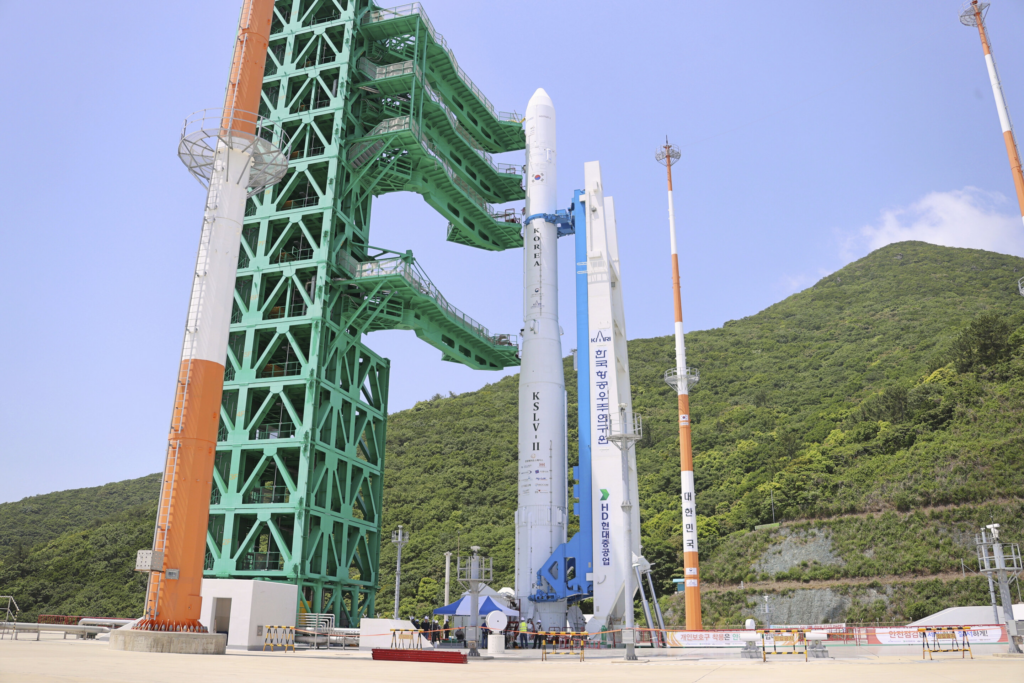Officials have announced that South Korea will launch its indigenous Nuri rocket on Thursday, a day after the launch was postponed due to a technical malfunction just hours before liftoff.
It will be the third launch of the Nuri, which successfully launched test payloads into orbit last year after its third-stage engine prematurely burned out in 2021.
A communication error between the launch control computer and another computer managing the launch site led to the cancellation of Wednesday’s launch.
This issue was resolved on Thursday morning, according to officials, who reported that the Nuri is now operational.

After a delay, South Korea will launch a rocket it made itself.
Vice minister Oh Tae-seog stated, “The Ministry of Science and ICT made the final decision to proceed with launch operation procedures with the goal of launching at 18:24 (0924 GMT) today.”
Longer than 47 meters (155 feet) and weighting 200 tons, the three-stage rocket will be launched from the Naro Space Center on the southern coast of South Korea.
During previous launches, the rocket primarily carried payloads designed to evaluate the efficacy of the launch vehicle.
According to the science ministry, the rocket was to be crowned with eight operational satellites, including a “commercial-grade satellite” this time.
Ko Jeong-hwan, director of the Nuri rocket project at the Korea Aerospace Research Institute (KARI), told reporters earlier that the third launch aims to place a domestically developed satellite with observation missions into the designated orbit.
KARI stated that the 180-kilogram NEXTSat 2 satellite, created by the Korea Advanced Institute of Science and Technology, will be deployed into orbit at 550 kilometers.
The satellite is equipped with a compact radar with synthetic aperture that can capture high-resolution images regardless of the weather.
The development of the three-stage Nuri rocket took a decade and cost two trillion won ($1.5 billion).
